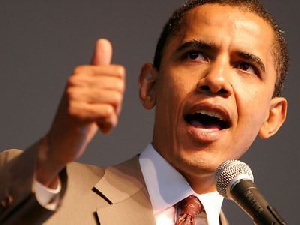Ghana and five other African countries are to benefit from US President Barack Obama’s new initiative dubbed: “Power Africa,” which aims at building on Africa’s power potential.
The initiative is to double access to power in sub-Saharan Africa and to build on new discoveries of vast reserves of oil and gas as well as the potential to develop clean geothermal, hydro, wind and solar energy.
Mr Grant Harris, who doubles as the Special Assistant to President Obama and Senior Director for African Affairs, reiterated this in a video conference on Wednesday.
The forum was a post President Obama’s recap of his trip to Senegal, South Africa and Tanzania with Michelle Obama and their two daughters.
Mr Harris said the President’s trip, which was done early in his second term, showed a strong signal of the significance of sub-Saharan Africa to US interest.
He said it was also to make a push to deepen US investments in Africa's development, strengthening democratic institutions and investing in the next generation of African leaders.
Mr Harris said in all the three countries President Obama visited, three core issues were the main focus.
These were expanding economic growth, strengthening democratic institutions and investing in the citizenry.
Ethiopia, Kenya, Liberia, Nigeria and Tanzania are the other five countries billed to benefit from the power initiative.
Ghana and the rest of the five countries have been chosen because they had set ambitious goals in electric power generation and are making the utility and energy sector reforms to pave the way for investment and growth.
Power Africa initiative is expected to also partner Uganda and Mozambique on responsible oil and gas resources management.
Mr Harris said the US had pledged to commit more than seven billion dollars in financial support over the next five years to the effort.
The United States Agency for International Development would also provide $285 million in technical assistance, grants and risk mitigation, to advance private sector energy transactions and help governments to adopt and implement the policy, regulatory and other reforms necessary to attract private sector investment in the energy and power sectors.
Additionally, the Millennium Challenge Corporation would invest up to one billion dollars in African power systems through the country compacts, to increase access and the reliability and sustainability of electricity supply through investments in energy infrastructure, policy and regulatory reforms and institutional capacity building.
The Overseas Private Investment Corporation, US Export-Import Bank and the US Trade and Development Agency are expected to make collaborative financial commitment towards the initiative.
During the visit, Mrs Obama was said to have emphasised the importance of education.
Speaking to children and youth in schools, vocational training centres and clinics in all three African countries, the first lady was reported to have consistently stressed the role education play in transforming lives and the well-being of the continent as a whole.
Despite steady progress over the last decade in getting more children into school, sub-Saharan Africa is still home to more than 50 per cent of the world’s 57 million out-of-school primary aged children.
Click to view details



Business News of Thursday, 11 July 2013
Source: GNA

















